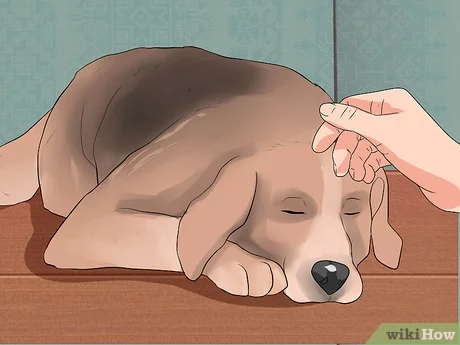Why Does My Dog Get Hiccups
Dogs are wonderful companions and are often considered as members of the family. They bring joy and laughter to our lives, but sometimes they also experience hiccups just like humans do. If you’re a dog owner, you might be wondering why your furry friend is experiencing this discomfort. Well, in this article, we’ll explore the reasons behind dog hiccups and what you can do to help.
What Are Hiccups?
Before diving into why dogs get hiccups, it’s important to understand what hiccups are. Hiccups are involuntary contractions or spasms that occur in the diaphragm muscle. This muscle plays a crucial role in breathing by separating the chest cavity from the abdominal cavity. When the diaphragm contracts suddenly and involuntarily, it causes air to rush into the lungs, resulting in the characteristic “hic” sound.
Hiccups can happen to anyone, including dogs. Although they’re usually harmless and go away on their own, prolonged hiccups can be a sign of an underlying health problem.
Why Do Dogs Get Hiccups?
There’s no one specific reason why dogs get hiccups. However, there are several factors that may contribute to hiccups in dogs:
Eating too fast: Dogs who eat too quickly may swallow air along with their food, which can lead to hiccups.
Drinking too much water: Just like eating too fast, drinking too much water at once can cause a dog to swallow air and experience hiccups.
Stress: Dogs who are stressed or anxious may experience spasms in their diaphragm muscles, leading to hiccups.
Excitement: Dogs who become overly excited may experience sudden changes in their breathing patterns, which can trigger hiccups.
Gastrointestinal issues: Gastrointestinal problems such as acid reflux or bloating may irritate a dog’s diaphragm muscle and cause hiccups.
How to Help Your Dog
If your dog is experiencing hiccups, there are several things you can do to help:
Wait it out: In most cases, hiccups will go away on their own within a few minutes. Simply wait it out and let your dog’s body resolve the issue naturally.
Massage your dog’s chest: Massaging your dog’s chest can help stimulate the diaphragm muscle and stop hiccups. Use gentle, circular motions around the chest area to help calm your dog down.
Change your dog’s eating habits: If your dog tends to eat too fast or drink too much water at once, try feeding smaller meals throughout the day or using a slow feeder bowl. This can help prevent them from swallowing air and getting hiccups.
Reduce stress: If your dog is prone to stress or anxiety, try to identify triggers that may be causing their distress and work with a veterinarian or animal behaviorist to develop a plan to reduce their stress levels.
Visit the vet: If your dog experiences prolonged hiccups or if they are accompanied by other symptoms such as vomiting or loss of appetite, it’s important to visit a veterinarian. They can check for underlying health issues that may be causing the hiccups and provide appropriate treatment.
In Conclusion
Hiccups in dogs are usually harmless and go away on their own. However, if they persist or are accompanied by other symptoms, it’s important to seek veterinary care. By understanding why dogs get hiccups and how to help them, you can ensure that your furry friend stays happy and healthy. So next time you hear those little “hics” coming from your pup, don’t worry too much – just give them some love and wait it out!



